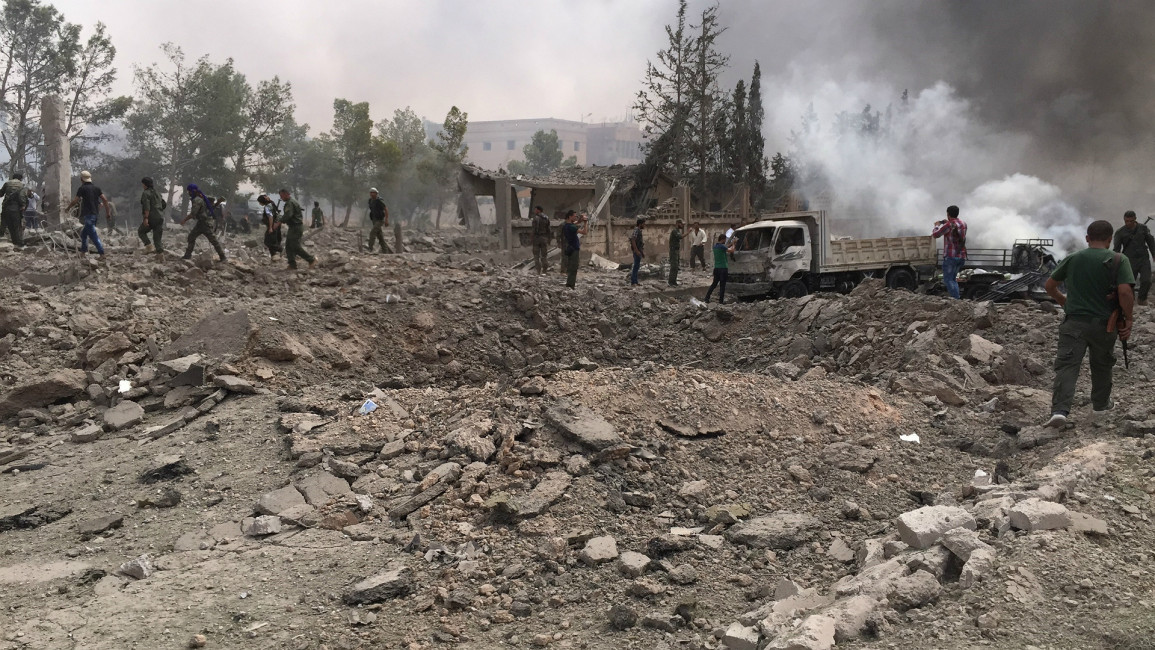Syria coalition airstrikes 'kill 37 civilians'
Dozens of civilians have been killed or injured in a coalition air raid, reported local sources.
Those who died in the attack on Monday were understood to be from the Hasakah countryside in north-eastern Syria.
"At least 37 civilians - mainly women and children - were killed in a coalition airstrike on the village of al-Khan in Hasakah," Mudhar Hammad al-Asaad, a local journalist, told al-Araby al-Jadeed.
| One civilian car carrying victims to hospital blew up when it drove over a land mine |
The UK-based Syrian Observatory for Human Rights reported that at least 26 people were killed in al-Khan, with casualty numbers likely to rise due to people being unaccounted for.
The air raid is thought to have happened while coalition planes provided air cover for Kurdish People's Protection Units (YPG) and Syrian Democratic Forces, who are fighting the Islamic State group on the outskirts of Hasakah.
Asaad said that at least 17 people were injured in the airstrike, and rushed to hospital in the city of Hasakah, while one civilian car carrying victims to hospital blew up when it drove over a land mine.
A spokesman for the US-led coalition said he had no details about the raid, but that a "credibility assessment" would review claims of civilian deaths.
Last month, the US said four civilians were "likely" to have been killed in strikes against IS in Iraq. And in November 2014, Washington admitted accidentally killing two children in a strike in Syria.
The al-Khan strike came with the coalition already under pressure over allegations it carried out a raid the previous day that killed Syrian soldiers, in the first such case.
Mudhar Hammad al-Asaad, a local journalist, told al-Araby al-Jadeed that the village did not have any military activity and its residents were poor farmers who work on the land and raise animals.


![Minnesota Tim Walz is working to court Muslim voters. [Getty]](/sites/default/files/styles/image_684x385/public/2169747529.jpeg?h=a5f2f23a&itok=b63Wif2V)




![Debris near Rafic Hariri International Airport [Getty]](/sites/default/files/styles/image_330x185/public/2176162423.jpeg?h=a5f2f23a&itok=MCSK9mkM)
![An Israeli air strike on Jabalia killed teenage journalist Hassan Hamad [Screengrab/X]](/sites/default/files/styles/image_212x120/public/2024-10/hassan%20hamad1.jpg?h=c12e0b96&itok=KstD_5xk)
